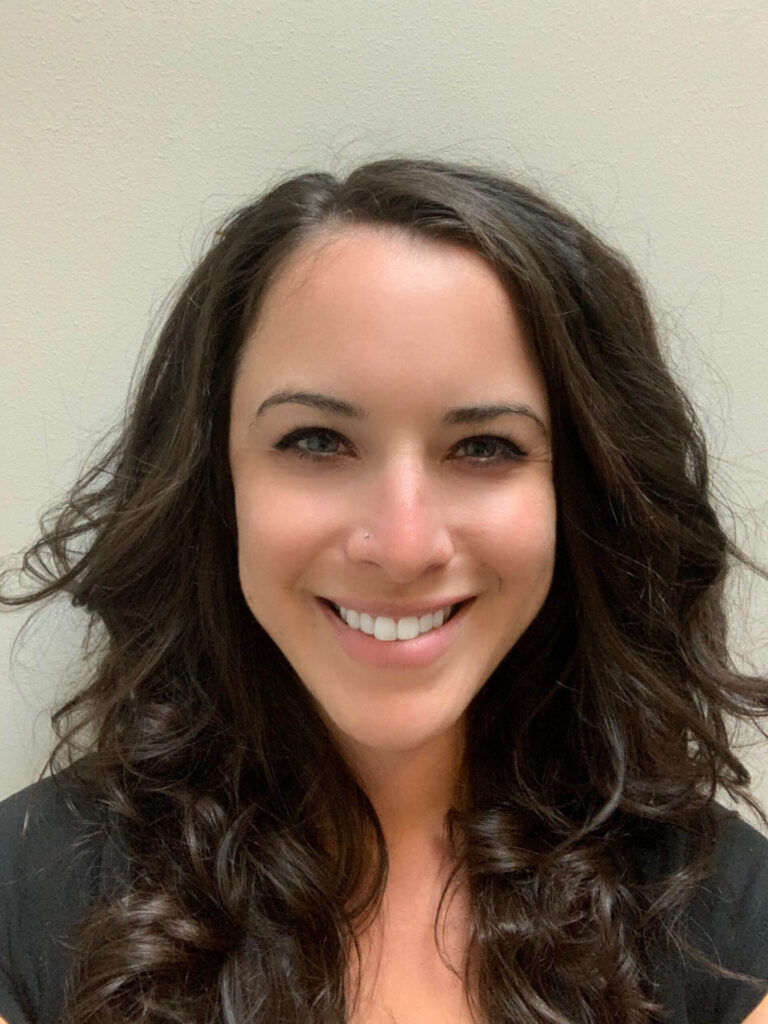Provider Spotlight: Alyssa Bernstein, CRNP, Allegheny Health Network

Alyssa Bernstein, CRNP is an advanced practice provider (APP) and the clinical manager of the Home Recovery Care program at Allegheny Health Network’s Jefferson Hospital. When she graduated as a nurse practitioner in 2021, she was excited to join the innovative program. In her role, she is responsible for identifying patients who qualify for the program and completing the admission process to transfer them home from the hospital.
“When I started, this was a new role in general, so we really had the opportunity to be creative and flexible with how we built the program,” Alyssa explained. Initially, she evaluated patients in the hospital for potential admission to Home Recovery Care and then followed them virtually through telehealth after they transferred home for care.
As the program grew, however, so did the need for more practitioners to manage the increasing number of patients. Today, Alyssa’s focus is on the detailed admission process and then a dedicated Home Recovery Care physician monitors admitted patients through remote patient monitoring and virtual visits.
“It starts with in-depth screening through charts,” Alyssa says. “The patient needs to have qualifying insurance, hospital-level acuity and an eligible treatment plan to be considered for Home Recovery Care. I am then responsible for communicating with the hospitalists, specialists, patients and their families to confirm everyone is comfortable and agreeable to the transition plan.”
Once a patient accepts admission into the program, Alyssa then manages medication reconciliation, any consents that must be signed, the plan of care and the transition summary. For providers in the hospital, she says taking patients into the program alleviates a portion of the work that is on their plate.
Additionally, “It allows another bed to open up to another patient who might be more critical and need that hospital care.”
Expanding opportunities to deliver care at home
As the program has seen success, the services it offers to patients have expanded as well. “We now have three different programs,” she shared. Depending on their insurance, length of stay and medical stability, patients can return home directly from the hospital—sometimes even from the emergency department, to complete their hospital stay and then enter a 30-day monitoring phase, or they can transition home to finish the final few days of a treatment plan that was started with a hospital admission.
Alternatively, with Home Recovery Care Plus, “Patients are medically cleared, discharged from the hospital, and sent home for skilled nursing level care. Upon discharge from the program, patients are followed by our care team for the remainder of a 60-day episode.”
“For me, it really just allows patients the opportunity to continue getting hospital-level care at home where they’re healing in their own environment with their loved ones,” Alyssa explains. She points out that traveling back and forth to the hospital and caring for patients’ homes and pets can create additional burden for families, too, which Home Recovery Care alleviates.
“Home Recovery Care ensures that patients don’t get lost in the health care shuffle. In addition to hospital-level clinical care at home, our team is scheduling follow up appointments, addressing medication issues and providing condition education. Patients benefit the most from this program. They are set up for long-term success.”
Alyssa also points out, “Statistically speaking, patients heal better and faster at home. They can move around more, they don’t decondition as much—especially for respiratory patients, who can decondition quickly if they remain in the hospital.”
She’s excited to share that this success is being recognized by both the patients and hospital providers who have had the chance to see it in action. Often, patients who have been enrolled for care in the past call ahead to notify Alyssa and her team that they are having a complication and will be going to the emergency room for care so they can be admitted to Home Recovery Care again.
She explains, “I now have providers call me to see if we can evaluate the patient and transition them prior to the hospitalist rounding, saving them time and decreasing patient volume burden.” This vote of confidence in the success of the program and its care means that they’ve had their busiest year to date. “Home Recovery Care opens up a new playing field for patient care. I’m invested in the whole program. That’s why I chose the job!”
